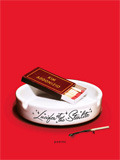December 10, 2009LUCIFER AT THE STARLITE
Review by Jeannine Hall Gailey
W. W. Norton & Company, Inc.
500 Fifth Avenue
New York, New York 10110
ISBN 0393068528
2009, 96 pp., $23.95
www.wwnorton.com
I’ve been a fan of Kim Addonizio’s poetry for many years now, so I was happy to have the opportunity to review her latest book, Lucifer at the Starlite. In this book, she turns the humorous and gritty beam of her attention on, yes, as you might expect, love and relationships, but also religion, global disasters, and the mythology of women, encompassing abandoned small towns, real and imagined book burnings, marines discussing sex. She includes poems on the Iraq war, poems about the 2004 tsunami, pulling personal events and world events together. I enjoyed the new direction in Addonizio’s work, her mood here both playful and mournful, especially the persona poems.
The title poem, like many of the poems in the book, is written in persona, imagining Satan in a dim nightclub, seemingly magnanimous, offering:
For every town, a marching band…
for each worker, a place beneath the table.
For every forward step a stumbling.
A shadow over every starlit thing.
This poem offers us an inside glimpse into a character who claims that, unlike God, “I show/ my face, I’m a real regular.” The menace of the last few lines belies the seemingly gregarious character at the beginning of the poem. These tonal shifts are interesting to me; they illustrate how persona poems can allow a reader an inside glimpse into characters they might not (willingly) imagine. This poem also establishes the darker tone of the book, one that looks evil squarely in the face.
As a writer of persona poems about fairy tales myself, someone who enjoys a new spin on the classics, I was especially charmed by the poems invoking fairy tale characters. Addonizio brings out the bite in the old tales. Beginning with section II, “Jukebox,” she warns the reader in a poem called “Where Childhood Went” that:
The teeth sold to the fairies
are tombstones in the graveyard of the fireflies…
…the old dolls are doing well; they smile and smile.
And the witch? Darling, the witch was real.
In another poem, the huntsman from Snow White enigmaticallyconfesses that he murdered the girl rather than saving her, but says “Think what you like:/ that I spared her, that she sang/ while keeping house for seven little men.” He encourages this imagining further at the end of the poem, where he tells the audience that
I remember my place in the story.
I let the girl go
into those fabled woods, in winter,
while the snow fell around us,
white on her black hair,
white on her blue Aryan eyes,white on her pretty, open mouth.
These lines, set against the context of poems about Iraq and eerily echoing another poem in which a marine describes killing a child in Vietnam in the same way he describes having sex with his girlfriend, become even more chilling.
In the final section, “I Am Going to Have to Take Your Keys,” the fairy tale themes resurface, first in “Hansel,” which rewrites the familiar tale with political overtones in a language of post-traumatic, urgent fragments:
We were set upon by rebels guerrillas tribesmen revolutionaries who they raped cut off and stabbed left I my sister Gretel, Gretel for dead graves hands…
The organization of the book itself, into sections named “Happy Hour,” “Jukebox,” Dance Floor,” and “I Am Going to Have to Take Your Keys” might hint at Addonizio’s familiar narrative of love and bars and drinking oneself into oblivion, but it is clear that the titles are used as ironic juxtaposition here against the more serious nature of this collection. In this book, Addonizio attempts to organize catastrophes both personal and global, pondering the nature of good and evil, the effects of chaos on individuals and countries. It is a book about creating meaning out of the detritus of troubled times. Lucifer at the Starlite is a manic, ambitious collection that ends on a note of hope, a hope based in the joy of creating art:
So I got my harmonica
and played a bit of Sonny Terry…
I don’t know if he listened, if it lita match to the damp cigarette of his joy…
but maybe it did
in some small, unrecorded way.